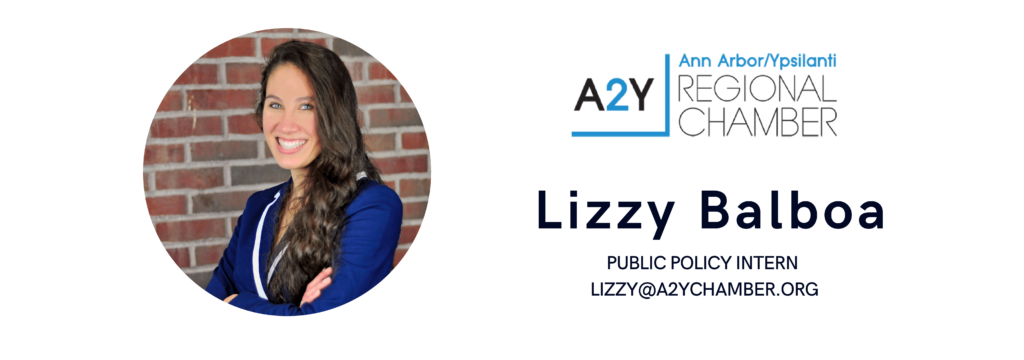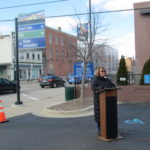TLDR: The Ann Arbor/Ypsilanti Regional Chamber is formally supporting the August 2nd Ann Arbor Area Transportation Authority (TheRide) millage proposal. Please take a look at the statement of support for the proposal which is on the ballot in the cities of Ann Arbor and Ypsilanti and Ypsilanti Township. — Andy Labarre
June 23rd, 2022 – The Ann Arbor Area Transportation Authority (TheRide), has proposed a millage to maintain and improve its transportation services to advance the community’s needs for social, environmental and economic sustainability. If approved by voters, TheRide will accomplish these purposes with funds raised by an August ballot measure for 2.38 mills, (replacing the existing 0.7 mill levy for a net increase of 1.68 mills). This is a large ask for voters and taxpayers at an uncertain time, but it will provide vital services that are greatly needed, and do so with an entity that has earned the trust of our community. The Ann Arbor/Ypsilanti Regional Chamber supports TheRide’s proposal for many reasons.
These funds will allow TheRide to continue providing its essential transit services and implement needed service enhancements. These include establishing an Ann Arbor-Ypsilanti Express Route to decrease travel time between the communities by 30% with limited-stops; Expanded overnight and holiday services, and expansion of NightRide to all of City of Ypsilanti, all of Ypsilanti Twp. north of Textile Road; Increased service frequency with more weekend buses to increase all 60-minute service to every 30-minutes; In-person customer service agents and office improvements at the Ypsilanti Transit Center, allowing ticket sales and in-person customer service; longer hours of service on both weekday and weekend evenings and earlier Saturday morning services; and a Capital Fund for future projects such as terminals, Bus Rapid Transit, zero-emission buses, garage, etc. These services are more than just desired amenities.
The proposed enhancements will benefit our local economy and community by better activating more parts of our workforce. They will also help our employers attract and retain talent by offering alternative transit options which appeal to a wide array of individuals, from young professionals to active retirees. These services are a particular necessity if we want to continue building a strong local tech sector, and they will help our community make important progress on equity measures related to racial and geographic disparities that continue to negatively impact Washtenaw County. Residents in lower opportunity areas will have access to the same services as all other residents. TheRide is an entity with a successful 50-plus year track record, a strong and engaged board of directors, and a staff that makes community engagement and response a key organizational value. Further, approval of the proposed millage will increase the amount of State and Federal funding that can be captured locally for transit, including operating funds and grants for capital projects.
The Chamber acknowledges that this is a large funding request, but also acknowledges the inherent limitations imposed by the State for how essential services like transit can be paid for. Millage increases tend to be small in isolation but large in aggregate, and increase costs for community members. This impacts issues like housing affordability and general cost of living in the area. This is one part of broader challenges faced by Michigan communities. Since implementation of the 1978 “Headlee” amendment, Michigan limits the amount of state taxes and fees that can be imposed on taxpayers by the Legislature. This limit is to 9.49% of total personal income in Michigan, but as a policy choice, the Michigan Legislature does not authorize collecting up to this limit. The gap between the amount of tax revenue the state could collect and actually does collect is now almost $12 billion annually, with an estimated aggregate amount of $141B between FY 2001 to FY 2021. As a result, many communities now seek to make up parts of that gap on a millage-by-millage basis rather than as a part of a comprehensive budget.
Acknowledging that TheRide’s ask is large, the Chamber believes that the value and benefits it will provide are larger. This millage will provide services our residents and employers need, and it will position our local economy to best navigate changes and uncertainties ahead in a way that allows for greater workforce participation, cleaner and more sustainable transportation options, and with an enhanced quality of life that will attract and retain individuals that will keep our community engaged and vibrant. TheRide’s millage is worth supporting.
Follow our releases on Google News.
















